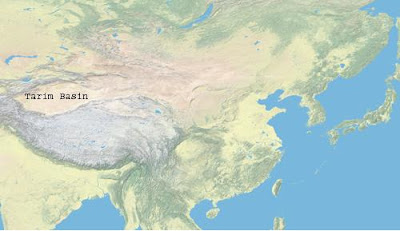Dogs and lesser animals, a review and discussion
Today I had the privilege of attending the premier of a film written by a Penn alum, Yao B. Nunoo and directed by Deron Albright, The Destiny of Lesser Animals (2011). The film itself is set in Ghana, West Africa and follows a police inspector named Boniface (Yao Nunoo) who had been deported from America back to his home country. He has been desperately trying to return to the United States. Upon acquiring his newly forged documents, however, they are stolen by the drivers of a passing scooter. In his efforts to recover his documents, Inspector Boniface finds himself tangled in a moral dilemma as more crimes and murders begin to pile up as a direct result of his attempt to return to America – does he continue to pursue the documents, or give up his dreams and live out his life in Ghana?
Although I am no expert in African cinematography, the film claims to be the first of its kind and I can definitely see why. The casual American viewer may judge its characters to be compelling and screenplay both developed and clever in the subtitles provided for the Fante, Twi, Pidgin, and other dialects of the Ghanaian languages (although much dialogue is in English, as Ghana is an Anglophonic country). The soundtrack is also thoughtfully written and camerawork professional and effective. However, few other full-length motion pictures from Africa are even comparable, as African directors are forced to assume near soap opera-like quality from either lack of budget, imagination, talent, or other limitations.
Apart from an engaging plot and fantastic production, the film also approaches several other important issues – such as Ghana’s democracy, emigration of talented individuals and relative elite, and finally the importance of right and wrong in everyday life. Ghana is a foothold for democracy in Africa and although has had its share of post-colonial turmoil, has seen stability, increasing prosperity and successful democratic elections in the past decades. An important issue for Ghana, however, is that any who are able to leave Ghana do so at the first chance to find work in a more developed, Western country, and usually when they are young. This is a problem, as those who would eventually be Ghana’s intellectual and fiscal elite emigrate, depriving Ghana of valuable, productive assets. Finally, Ghana is, as accurately described by the director in a question and answer session at the showing, as a very didactic nation – ideas are taught, things are memorized, and right and wrong are clear and not to be disputed. This movie introduces new ideas that challenge such a paradigm, that perhaps right and wrong are not so linear and clear cut.
When writer Nunoo visited my class (EALC 257, Contemporary Japanese Fiction and Film) on Friday October 28, he mentioned how his greatest inspiration was from a Japanese film by Akira Kurosawa, Stray Dog, original title: Nora Inu, (1949). Kurosawa’s film is about a police officer named Detective Murakami (Toshiro Mifune) who loses his gun after firing practice. With each new violent crime committed, he wonders if it was his gun used in the act and must contend with this guilt, helplessness, disgrace, and anger, all which are likewise part of Boniface’s character. Stray Dog was an exceptional film in its own right for many similar reasons. Japanese cinematography was at this time just beginning to experience its own revolution as unprecedented freedoms came with the democratic government and constitution imposed by the United States on post-World War II Japan.
One thing that I was not satisfied with was the portrayal of religion in the film. Although the film already grappled with many other ideas and even broached the topic of religion in several ways, religion did not play any central role in the film. Although Ghana has many different practicing religions, communities are very religious (I have been to church in Ghana, I know!), no matter the denomination. Boniface is also a name that carries significant religious weight, as nine popes bore the name Boniface. I did, however, not see Boniface as a particularly religious character. In the Q&A session, I asked about Nunoo’s decision as writer if he avoided making Boniface particularly religious for any reason. Nunoo replied that Boniface’s name’s religious connotation was an accident and that although religion was an important part of life in Ghana, it was not a priority among the issues the film needed to address.
Overall, the film was very well received by the audience and I would certainly recommend it to African film enthusiasts, fans of Stray Dog, or anyone interested in Sub-Saharan Africa in general. The film was shown at 7:30 PM October 30th at the International House in Philadelphia at the University of Pennsylvania as a part celebrating the 20th year of the Philadelphia Film Festival and will be showing again on the closing night.
F. Miller SAS '13


Comments
Post a Comment
We follow the House Rules as outlined by the BBC here.